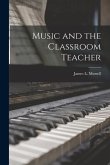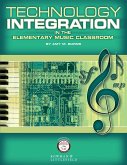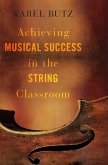An adept improviser can find ways forward amid impasse, agency amid oppression, and community amid division. The editors and contributors to The Improviser’s Classroom present an array of critical approaches intended to reimagine pedagogy through the prisms of activism, reciprocity, and communal care. Demonstrating how improvisation can inform scenes of teaching and learning, this volume also outlines how improvisatory techniques offer powerful, if not vital, tools for producing connection, creativity, accompaniment, reciprocity, meaningful revelation, and lifelong curiosity. The Improviser's Classroom champions activist pedagogies and the public work essential for creating communities bound together by reciprocal care and equity. Contributors: Sibongile Bhebhe, Judit Csobod, Michael Dessen, jashen edwards, Kate Galloway, Tomie Hahn, Petro Janse van Vuuren, Lauren Michelle Levesque, George Lipsitz, Rich Marsella, Tracy McMullen, Hafez Modirzadeh, Ed Sarath, Joe Sorbara, Jesse Stewart, Ellen Waterman, Carey West, and the editors
Bitte wählen Sie Ihr Anliegen aus.
Rechnungen
Retourenschein anfordern
Bestellstatus
Storno








